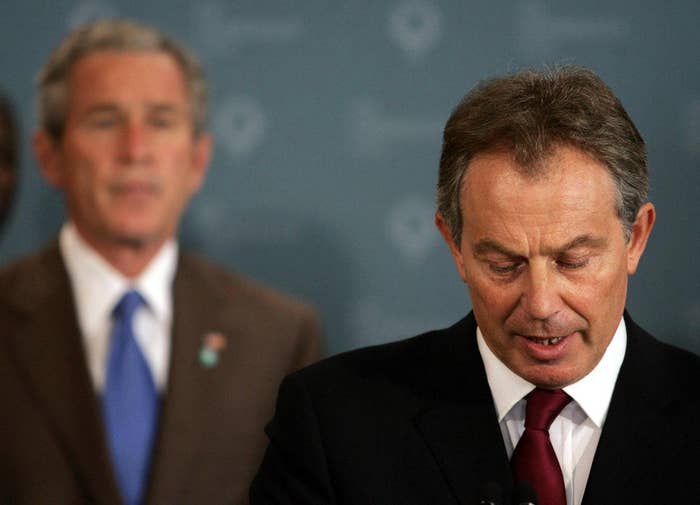"Iraq is now in mortal danger," warned Tony Blair on Saturday night.

The current violent insurgency in Iraq was "predictable" after the West's failure to intervene in Syria, according to Tony Blair.
In an essay published on his website, the former Prime Minister wrote that the events in Mosul, which saw an entire Iraqi city taken over by Sunni militants, were "planned and organised from Raqqa across the Syria border," adding that the fighters gained experience fighting in the Syrian civil war.
The lack of any action in Syria also meant groups such as Islamic State in Iraq and the Levant (ISIS) were able to strengthen themselves. He wrote: "Islamist extremism in all its different manifestations as a group, rebuilt refinanced and re-armed mainly as a result of its ability to grow and gain experience through the war in Syria."
Blair added that lack of any military intervention in Syria means it it now "in the worst state of all" when compared with Iraq and Libya.

He rejected any "bizarre" notion that the current situation in Iraq is due to the military invasion in 2003.
"We have to liberate ourselves from the notion that 'we' have caused this. We haven't," he said.
Instead Blair said it was "bizarre" to suggest that there would not be a crisis if Saddam Hussein was still be in power, rather suggesting that Iraq would have been overtaken by a full-blown sectarian crisis during the so-called Arab Spring.
He also used the essay to defend the decision to intervene in Iraq, using the example of Bashar al-Assad.
He said:
"What we now know from Syria is that Assad, without any detection from the West, was manufacturing chemical weapons. We only discovered this when he used them. We also know, from the final weapons inspectors reports, that though it is true that Saddam got rid of the physical weapons, he retained the expertise and capability to manufacture them.
Is it likely that, knowing what we now know about Assad, Saddam, who had used chemical weapons against both the Iranians in the 1980s war that resulted in over 1m casualties and against his own people, would have refrained from returning to his old ways? Surely it is at least as likely that he would have gone back to them."
Instead Blair placed the blame on three main factors: sectarian policies on the part of the Maliki government, the government's failure to adequately re-invest oil money into the country, and "the inadequacy of the Iraqi forces".
"The choices are all pretty ugly".
Blair admitted the next steps would be difficult but implored world leaders to act strongly. "The choices are all pretty ugly, it is true," he said, "But for 3 years we have watched Syria descend into the abyss and as it is going down, it is slowly but surely wrapping its cords around us pulling us down with it.
"We have to put aside the differences of the past and act now to save the future."
But his overall message was impassioned and warned that countries needed to cooperate to act against the threat of extremism.
"The civil war in Syria with its attendant disintegration is having its predictable and malign effect. Iraq is now in mortal danger. The whole of the Middle East is under threat," he said.
